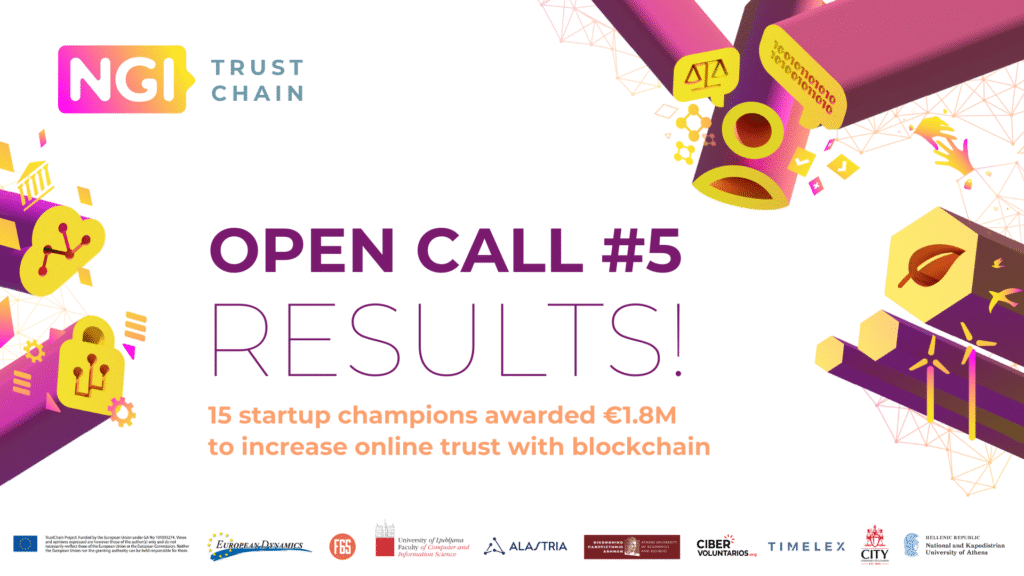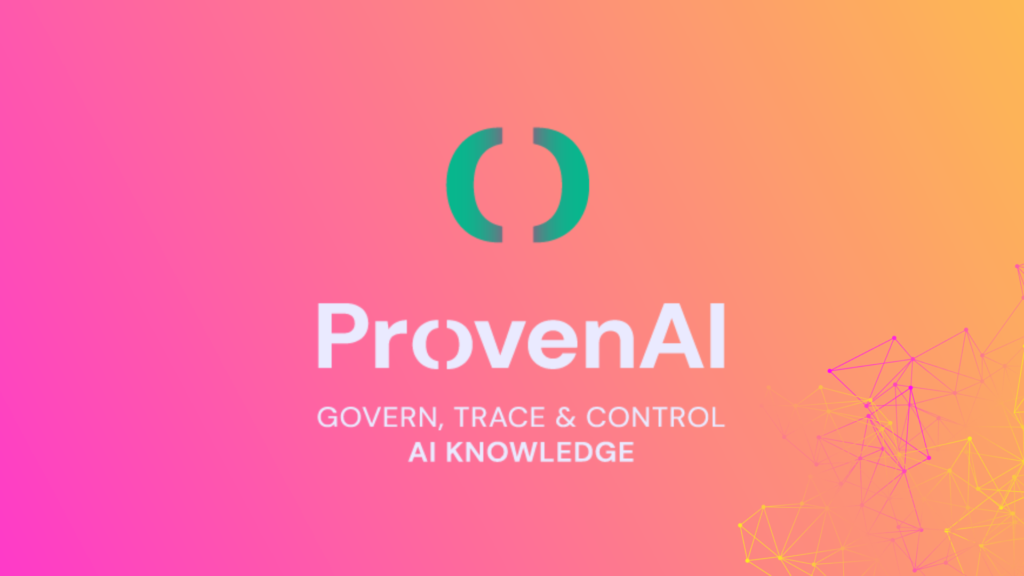TrustChain Open Call 5: Announcing the Winners and Stats!

TrustChain is proud to announce the winners of its fifth Open Call, focused on achieving high energy efficiency and optimisation within Distributed Ledger Technologies through the innovative use of digital identities, trustworthy data, and novel economic mechanisms. The call sought to find the most appropriate trade-offs between technological application, the security of consensus protocols on […]
Interview: Meet the PROVEN AI team!

This interview explores the work of Ctrl+Space Labs, a team focused on promoting ethical and inclusive technology. They discuss their project, ProvenAI, which tackles the important issue of recognizing content creators in the context of AI. The team explains the advantages of ProvenAI and their vision for the future of decentralized and privacy-focused internet technologies. […]
Interview: Meet the LED-UP team!

In this interview, we explore how the LED-UP team combines expertise in design, social sciences, economics, and blockchain to develop secure, decentralized solutions. With backgrounds in healthcare, business psychology, and software development, they are dedicated to enhancing privacy, security, and accessibility in digital identity management and beyond. Can you briefly present your team? Sarra-Maryam blends […]
Interview: Meet the NG-SC team!

The NG-SC team, comprising experts in blockchain, distributed systems, and sensor networks from InnoRenew CoE and the University of Primorska, is advancing decentralized technologies with a focus on privacy and innovation. In the interview, they share their approach to leveraging IoT and decentralized solutions to address privacy concerns and empower users with data ownership, contributing […]
Interview: Meet the PECS team!

The PECS team, made up of academics and researchers from the University of Catania and the University of Modena and Reggio Emilia in Italy, is focused on advancing security and privacy-enhancing technologies. In the interview, they discuss their multidisciplinary approach and the team’s work in addressing privacy concerns within the automotive sector. Can you briefly […]
Interview: Meet the GUEHDS team!

GUEHDS is an innovative consortium uniting key players in health and data technology. At its core are Instituto Pedro Nunes, a R&D center and business incubator in Coimbra, Portugal, and two major healthcare providers—the Local Health Units of Coimbra and Santo António—serving the North and Central regions of the country. Leading the consortium is Promptly […]
Interview: Meet the dGUARD team!

The dGUARD project team brings together the expertise of three dynamic partners: the i2CAT Foundation, Bloock, and TopDoctors. This collaborative consortium leverages each partner’s specialized skills to develop and pilot dGUARD, an innovative, privacy-centric data-sharing platform tailored for healthcare applications. Bloock contributes robust SSI and blockchain components for secure data handling, while i2CAT focuses on […]
Interview: Meet the SURE team!

Clearbox AI is an award-winning tech startup specializing in synthetic data for privacy preservation and data augmentation. The SURE team, led by CEO Shalini Kurapati, CTO Luca Gilli, and Machine Learning Engineer Dario Brunelli, has an impressive track record in both R&D and commercial projects centered around trustworthy AI, with a focus on data-centric AI, […]
Forging the Future of Web3 Funding with the WID3+ Consortium: Insights from Bangkok’s Blockchain Events and Authbond’s Progress

The second week of November was a busy and exciting time for the Web3 community, especially for those in the Ethereum ecosystem. With the 7th Ethereum-focused conference and Thailand Blockchain Week 2024 happening in Bangkok from November 6th to 16th, members of the WID3+ Consortium were on the ground actively contributing to the events and […]
Interview: Meet the EIDCMP team!

In today’s interview, we are excited to speak with the team behind EIDCMP, a consortium that brings together expertise from WalliD, APBC, and Bloq4U. Together, they are working on the WalliD CertiShop platform, which focuses on secure, digital certificate solutions. With each organization bringing its own unique strengths—WalliD’s leadership in digital identity, Bloq4U’s blockchain consulting, […]
